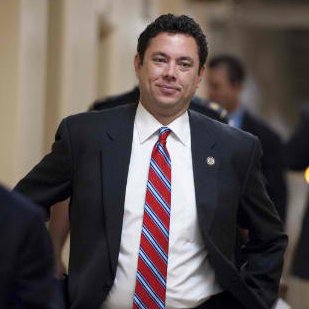
Chaffetz began by saying, “For more than 50 years, we had in place the Wire Act. It had a prohibition on gambling. It’s why you couldn’t go down to… Western Union and wire money and bet money on who knows what.” Chaffetz alluded to the 2011 decision by the US Department of Justice that said the Wire Act of 1961 only applies to sports betting, opening up the door for regulated online poker and casino games in US states.
Chaffetz added, “With no notice to the public, a single lawyer in the DOJ released a memo reversing 50 years” of policy. “If you want to see things done differently, our framers have put forward a process, and that is you introduce a bill, you fight for it, and you try to get it into law.”
One of our favorite parts about committee hearings are lawmakers’ attempts to define what the internet is. From “a series of tubes” to “it’s not a big truck,” we’ve seen them all. Chaffetz gave his insight to the list: “The internet doesn’t have neat walls around it… Let’s not pretend the internet is special for certain people.”
Ranking Member Elijah Cummings(D-MD) told onlookers, “What we seek is fairness. We also seek information in regard to those states already doing it… In some kind of way, we have to make sure whatever we do is fair, is just. We want to hear both sides.” He added that the hearing was “really all about the money,” but didn’t mention Adelson or anyone else by name.
Bonnie Watson Coleman (D-NJ) gave a very informed take about her state’s regulation of online gambling: “The evidence clearly demonstrates that with proper regulation, in-state online gambling poses no more problems to law enforcement than brick-and-mortar gambling… These three states have not seen an increase in law enforcement or consumer risk.”

He added, “The three existing US markets have now applied their knowledge to actual operations, and historical speculation” has been discarded. Instead, he argued that rather than focus on regulated gambling, “illegal gambling operators need to be put in the spotlight.”
FBI Assistant Director Joseph Campbell largely made a fool of himself, unable to answer seemingly any question about FBI enforcement other than saying the agency uses whatever means necessary to prosecute criminals. He added, “A private tournament or game can allow one person to transfer money to another person” and “Internet-based casinos, like live casinos, can be used to funnel criminal proceeds,” yet he could not give a single example of that happening.
Campbell also tried to say Full Tilt was a sports betting case, which is false.
South Carolina Attorney General Alan Wilson was also among the largely uninformed panel, saying that the DOJ opinion should have been debated in Congress, parents have left kids to “die in cars” while they played video poker in South Carolina, and that the DOJ opened “Pandora’s Box.” However, he noted that despite his concerns, “Each state is entitled to itself whether to regulate online gambling or ban it altogether.”
Wilson later said that Congress could regulate iGaming through the Commerce Clause and not trample on the 10th Amendment.
Nebraska attorney Donald Kleine said it’ll be hard to devote “precious resources” to iGaming enforcement and talked about the difficulties of geo-location. He also said he’s worried about the children. Who isn’t?
Q&A time. Thomas Massie (R-KY) started it off, wanting to know how much the FBI budgets for iGaming and wanting to know if the FBI has prosecuted anyone about regulated iGaming. Campbell was unable to provide any concrete response to his questions. Massie also asked why states can’t regulate iGaming on their own and questioned the need for a universal ban.

Republicans continued to virtually slap Chaffetz’s face, including Mick Mulvaney (R-SC, pictured), who asked whether the Federal Government should ban online gambling. Gambling guru Joe Brennan Tweeted while Mulvaney was speaking, “Rep. Mulvaney, a Republican from S. Carolina, gives perhaps the most impassioned defense of states’ rights to regulate iGaming. Wow.”
Cummings asserted that if the US outlawed online gambling, brick-and-mortar casinos would make more money, pointing out, “It’s really about the money… It sounds like the issue of illegal gambling” is a separate topic. Lipparelli then said during a response, “We want players to move to regulated sites.”
Finally,Jody Hice (R-GA), a longtime pastor, said he’s opposed to all gambling. This is where this author thought the hearing would go south, but Hice pulled it together and argued, “I’m also the supporter of the 10th Amendment… We have to protect the 10th Amendment whether or not we like the gambling issue as a whole.” He finished with a rather emphatic comment that RAWA “flies right in the face” of the US Constitution.
The hearing then broke for floor votes. After the hearing, a video from GeoComply was shown and Dina Titus (D-NV) called out Campbell and other witnesses for questionable testimony, calling it “absurd” and “jaberwocky.”
Stacey Plaskett, a delegate from the US Virgin Islands, then gave what the Poker Players Alliance called a “master class” in the UIGEA, showing that the law, which a Republican-controlled Congress passed, allows intrastate online gambling.
Chaffetz was absent for the hearing following the break to vote. Where he was remains to be seen given that the hearing was at the behest of the Utah Congressman.
We’ll keep you posted on the latest.
